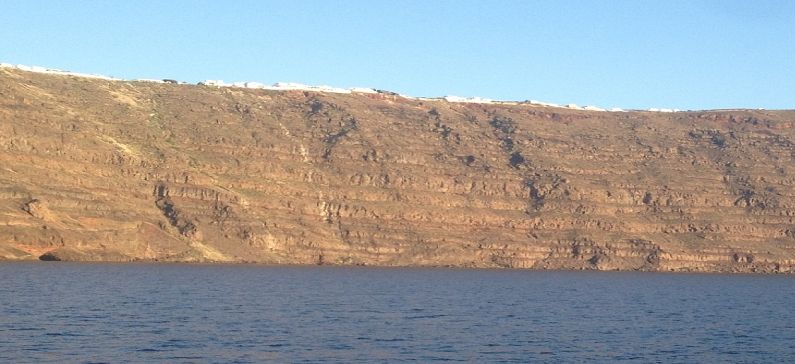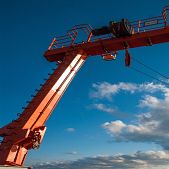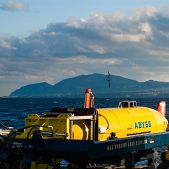
German and Greek scientists study underwater volcanoes in Santorini
The seabed and submarine volcanoes in the Cyclades, focusing on those of Santorini and Columbo, are being studied from March 8th by the research vessel “Poseidon” of the German Center for Oceanographic Research GEOMAR Helmholtz Centre for Ocean Research Kiel, in cooperation with the Department of Geology and Paleontology of the University of Athens (UOA). The aim of the scientists is to study the evolution of undersea volcanoes of the Cyclades in depth of million years in the past, but also to find valuable clues about potential future volcanic hazards.
The Santorini volcano attracts Greek and foreign scientists in order to study the largest volcanic eruption that occured about 3600 years ago as well as the most recent eruption of the underwater volcano Columbo in 1650 AD.
The research project, which will run until the end of May, includes four oceanographic expeditions to explore with specialized machines of the underwater area of Greek volcanic field. The three missions are focused on the region between Santorini-Amorgos-Nisyros, while the fourth in cooperation with the German University of Erlangen-Nuremberg (Center Geosciences GeoZentrum Nordbayern), will focus on the subsea of the Saronic region.
The first mission, involved the study of tectonic faults in the basin of Arid, as well as the study of hydrothermal activity in the caldera of Columbo northeast of Santorini. In total 100 square kilometers were ‘scanned’ and mapped with an autonomous underwater vehicle (AUV) named Abyss. The objective of this mission was to understand the active tectonic structure of the area and how it interacts with the activity of the active volcanoes, the hydrothermal, and earthquakes.
Scientists took cores samples from a depth of three meters below the seabed in order to later pursue the geochemical analyzes on rocks retrieved. The temperature of two hot cores obtained from the Columbo was found to be at least 99 degrees Celsius when measured on board and samples were so hot that the scientists could not touch them.
Scientific director of the first mission project is the Canadian professor Mark Chaningkton of the Center GEOMAR and Paraskevi Nomikou, Assistant Professor at the University of Athens. She studies intensively the Santorini volcano and Columbo since 2010.
The second mission, in April, will focus on the study of the evolution of the volcanic field between Christianni-Santorini-Columbo.










